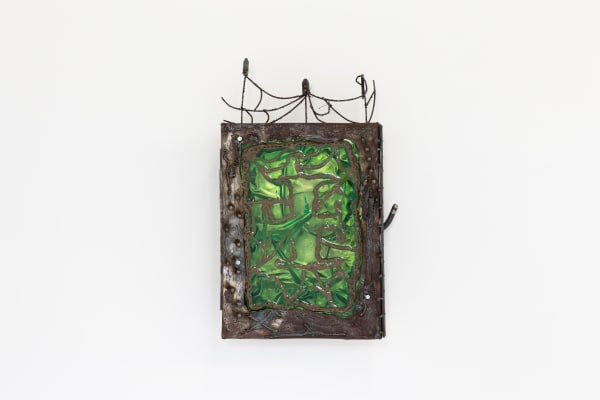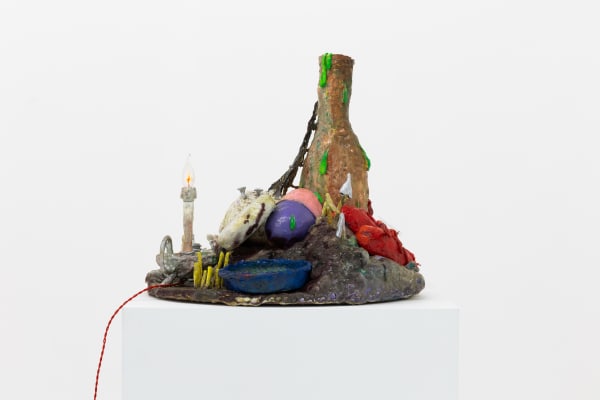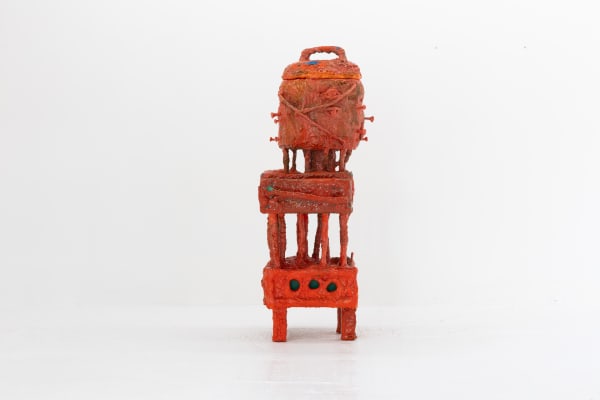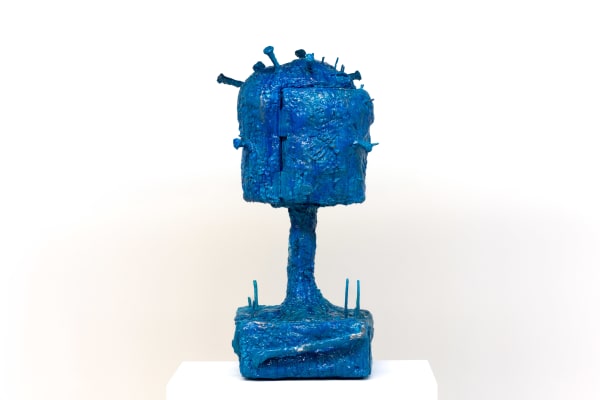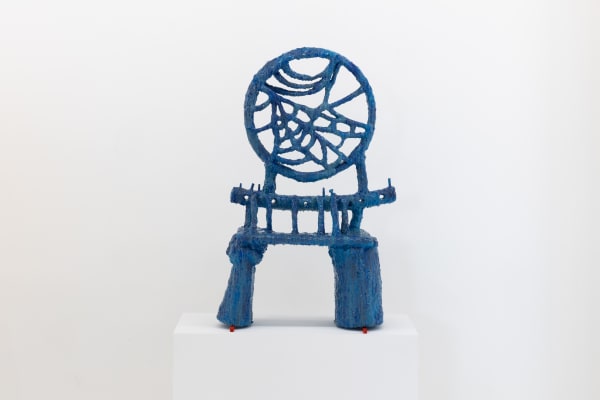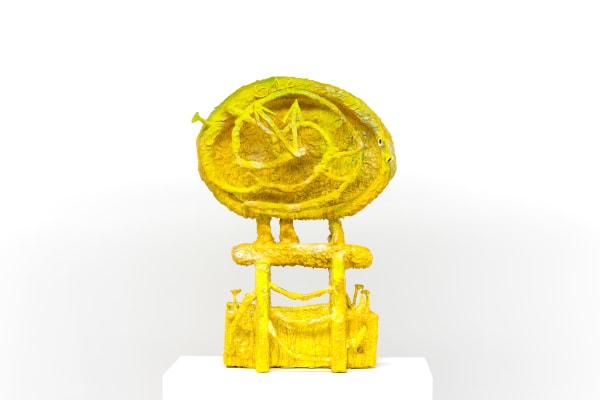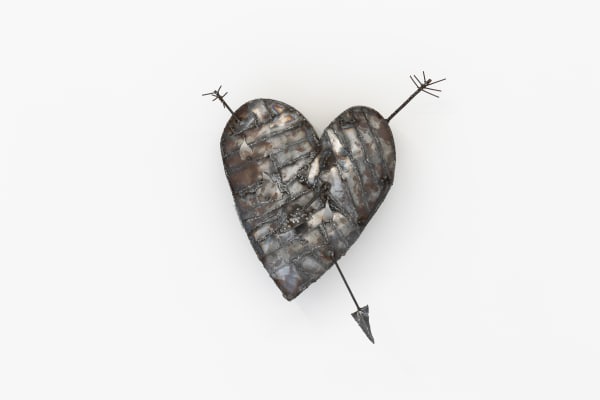We prefer not to think about it, but we all know it: everyone now living will die someday. In his latest solo exhibition for Everyday Gallery, A Romantic Weekend At Freeman Ranch, Tom Volkaert (b. 1989, Belgium) takes this insight as a starting point for a careful reflection on the way in which life and death intertwine. He unites personal experiences, such as the death of a good friend, with his own reworking of classical themes from art, such as the memento mori and the iconography of the heart. In this way, Volkaert creates a space in which love and loss, escapism and life force, illness, and health no longer exclude each other but rather reinforce each other.
The title of the exhibition refers to a research institute at Texas State University, a so-called ‘body farm' where researchers study the decomposition of bodies. Volkaert's title lets this clinical research environment collide with the loving escapism of a romantic weekend. That clash, which is both estranging and funny, is completely sincere: this exhibition is not a biting criticism of a scientific approach to death, and it does not look down on a naive, romantic approach to mortality. Volkaert embraces both with equal enthusiasm. And that is precisely the point: in a society in which we hide and compartmentalize illness and mortality as much as possible, Volkaert creates a space in which they can be present alongside each other. A Romantic Weekend At Freeman Ranch shows the world as we know it, but rearranged through Volkaert’s creative vision - making the existing world completely new again.
In this exhibition, Tom Volkaert’s famous Steering Wheels are the protagonists that hold everything together. They are totem-like figures, simple head-on-legs, based on a self-portrait of the artist. They are a tribute to the courage and optimism with which young children put a human figure on paper for the first time. Volkaert develops the gnarled, organic lines into a forest of branches, a clock, a grimace. The colors are lighter and more fiery than previous Steering Wheels. Can they rekindle some of that childlike energy we once had? Can their energy help us to interact with the world in a different way? The Steering Wheels in this exhibition stare us straight in the face and confront us with that question.
They guide us in an attempt to develop new spaces together with Tom Volkaert; spaces in which love, illness, pleasure, sadness, and loss are allowed to intermingle. Many of the works in A Romantic Weekend At Freeman Ranch fulfill a dual role: they are works of art and design objects. It often concerns objects that belong to the personal, even intimate sphere. Take the medicine cabinets, for example. They unite a clinical, pharmaceutical approach to health with a highly personal experience of using medicines for treating a disease. The image of the heart confirms that intimate experience, but also plays with classical iconography.
A key work in A Romantic Weekend At Freeman Ranch is the vanitas still life, named after the title of the exhibition, in which Volkaert brings together many of his themes. A green-brownish liquor bottle bears the inscription XXX. In the old days, that sign was used to indicate that the illegally distilled alcohol (also known as ‘moonshine’) has been distilled three times, which means it is high in alcohol. The illegal process clashes with the official medication, represented here through very large, cartoonish pills. The skull is a classic element of a vanitas scene and explicitly recalls death. Then there is the soup bowl, more specifically Breughel soup, in which letters float that spell the title of the exhibition. This bow is based on Pieter Breugel’s Peasant Wedding (1567) and brings celebration, humor, and life to Volkaert’s work. Finally, the iconic heart is again present, this time like a clock ticking mercilessly towards death.
The themes that Volkaert develops in this show are socially relevant and enter into conversation with art history, but they are also personal. In the spring of this year, one of Volkaert’s best friends, the artist Daan Gielis, passed away. The two shared the ability to give a completely different meaning to a shape or object with a small artistic intervention. A Romantic Weekend At Freeman Ranch is a space in which that artistic friendship lives on. Volkaert has taken up some of Gielis’s themes in his own style. The melancholy drooping palm trees of Gielis have been transformed by Volkaert into,among other things, poppy flowers, and a carnivorous plant. They are robust and firmly grounded; they survive even though they are in watery soil that looks poisonous. It is a powerful testimony of friendship and mutual inspiration. In doing so, Volkaert creates a space in which love, loss, illness, and life force are all present and reinforce each other.
Text by Bram Ieven


